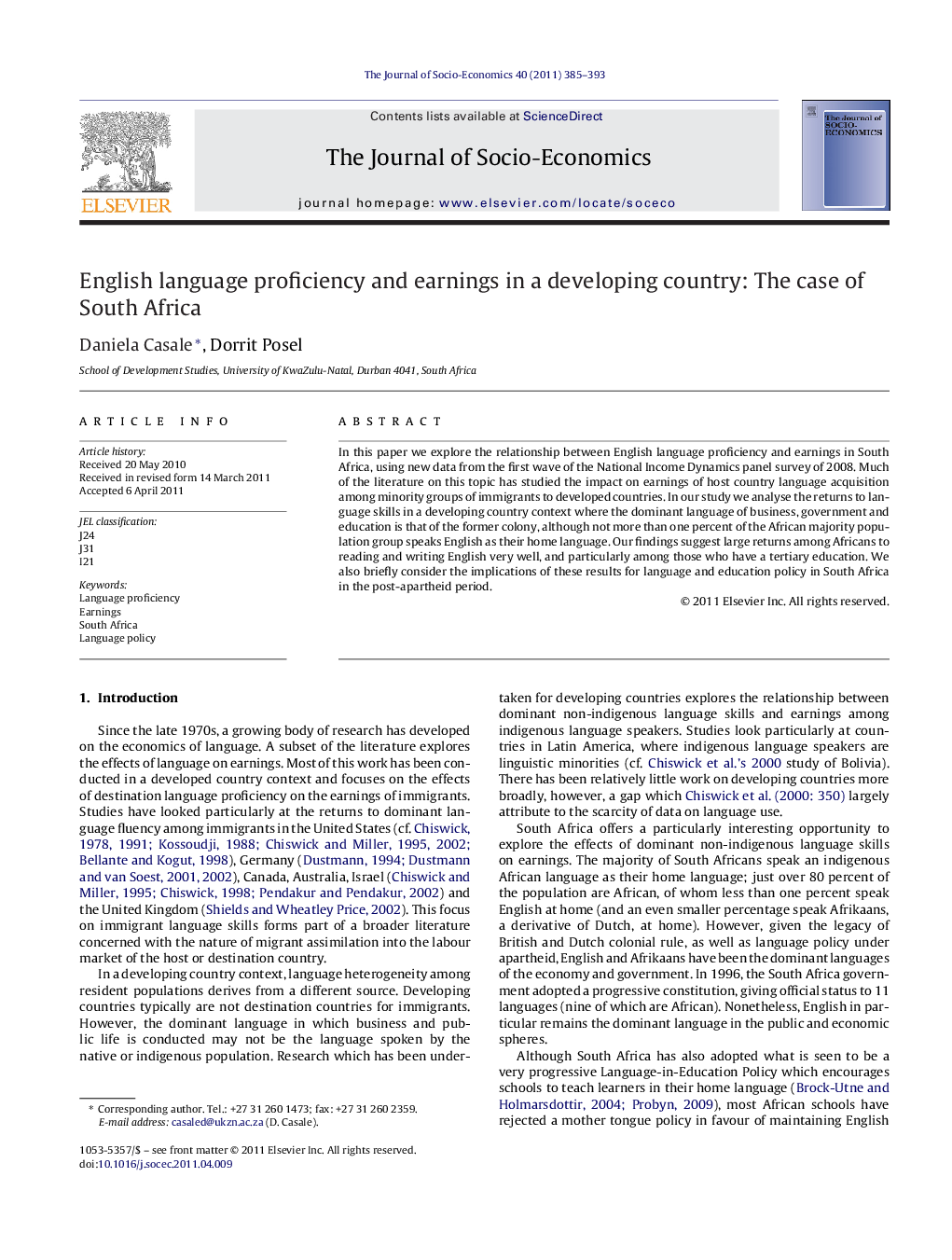| Article ID | Journal | Published Year | Pages | File Type |
|---|---|---|---|---|
| 970803 | The Journal of Socio-Economics | 2011 | 9 Pages |
In this paper we explore the relationship between English language proficiency and earnings in South Africa, using new data from the first wave of the National Income Dynamics panel survey of 2008. Much of the literature on this topic has studied the impact on earnings of host country language acquisition among minority groups of immigrants to developed countries. In our study we analyse the returns to language skills in a developing country context where the dominant language of business, government and education is that of the former colony, although not more than one percent of the African majority population group speaks English as their home language. Our findings suggest large returns among Africans to reading and writing English very well, and particularly among those who have a tertiary education. We also briefly consider the implications of these results for language and education policy in South Africa in the post-apartheid period.
► In this paper, we examine the returns to language proficiency in South Africa. ► There is a large earnings premium to English language proficiency among Africans. ► There is no independent premium to being proficient in an African home language. ► The highest returns to English proficiency accrue to those with tertiary education.
